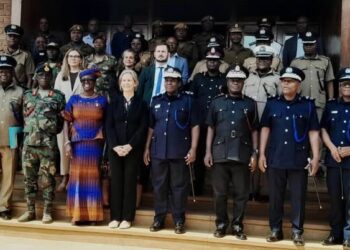It is interesting, even bizarre, how the Democratic Progressive Party (DPP) is oozing with confidence that it has already won Tuesday’s elections. To hear its leaders speak, victory is a foregone conclusion. Yet, when one examines the facts on the ground, this confidence is not only misplaced, it is embarrassing.
On Saturday, Malawians witnessed a spectacle that summed up the entire DPP campaign. Its candidate, former President Arthur Peter Mutharika, fell down as he staggered his way up the stairs to a campaign podium.
The incident was more than a fall. It was a metaphor for the DPP campaign itself. Shaky, uncoordinated, trying to appear strong while betraying fragility at every turn.
Now, it is interesting, and even telling, how the DPP is oozing with all the confidence that it has already won the Tuesday elections. Yet, everything on the ground, all the odds seem to be against them and forcing well meaning Malawians to pose a hard but honest question that seeks an honest answer: On what grounds does the DPP think it can win?
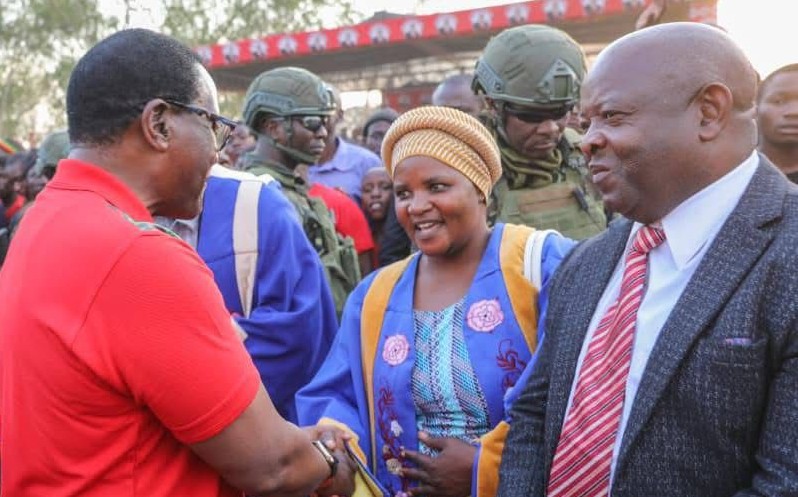
Now, let us look at the bigger context of these elections including the whole campaign trail.
When the campaign officially opened, Malawians expected an open contest of ideas, energy, and national vision. What they have seen instead is a striking contrast.
On one hand, President Dr. Lazarus McCarthy Chakwera of the Malawi Congress Party (MCP) relentlessly pounding the dusty roads of Malawi, crisscrossing mountains and valleys, sleeping in rural outposts like Chitipa and Nchalo, and addressing hundreds of whistle-stops.
On the other hand, APM seemingly withdrawn and distant, slow to the ground, and leaning on an assumption that his party can ride nostalgia and southern numbers back to power.
The arithmetic, the ground game, and the political psychology of the moment tell a different story. If elections are truly a contest of who shows up, then the DPP has already conceded the race to Chakwera. And if they think otherwise, it is a dangerous illusion.
By mid-September, the campaign numbers were already speaking louder than any campaign speech. Chakwera has executed 421 whistle-stops, while Mutharika has managed a paltry 17. That is not a small gap; it is a chasm. Whistle-stops are not ceremonial. They are retail politics at its finest, the art of appearing at a trading centre, looking voters in the eye, shaking hands, listening to grievances, and firing up local confidence.
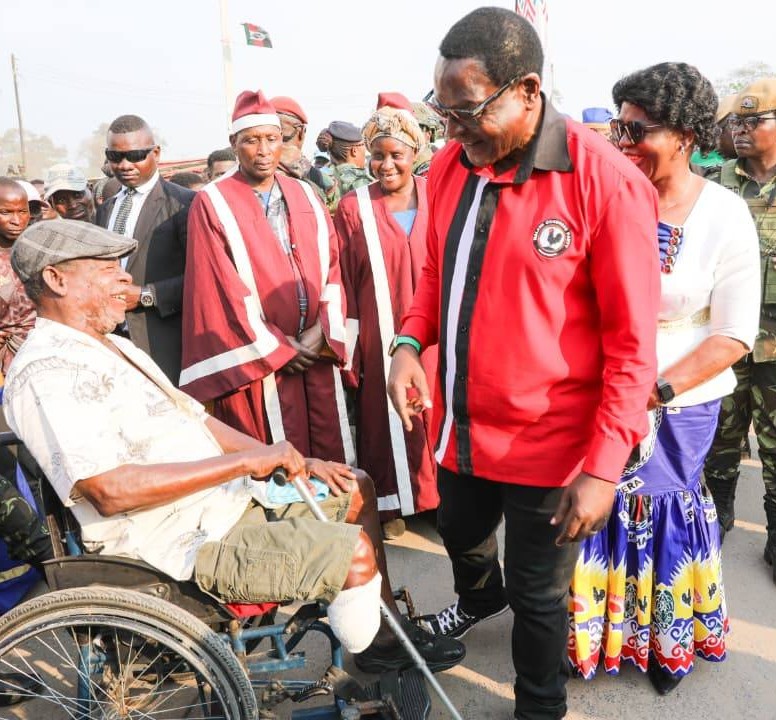
Chakwera has made it a religion.
He has marched through every region, covering remote corners often neglected by politicians. He has lodged in Chitipa, breaking the stereotype of a president who sleeps only in State House comfort. He has braved the heat and dust of Chikwawa, sleeping in Nchalo to send a symbolic and practical message: “I am here with you.”
The DPP, meanwhile, has barely stirred.
Mutharika, weighed down by age and frailty, has attempted a handful of high-profile appearances but avoided the punishing rhythm of whistle-stops. His running mate, Jane Ansah, herself a controversial figure linked to Malawi’s electoral crisis of 2019–2020, has not filled the gap with energy or reach.
In a country where visibility is everything, the DPP’s minimal presence is indistinguishable from absence.
Now, the electoral mathematics also tell another sad story of less hope.
Elections are a numbers game. They are not won by rhetoric alone, but by the cold arithmetic of registered voters and how they are distributed. Here too, the DPP’s optimism collapses under scrutiny.
Consider the Central Region, traditionally the MCP’s fortress. The registered voters in Dedza (355,120), Salima (186,653), Dowa (347,130), Ntchisi (141,686), Kasungu (370,519), and Mchinji (252,359) add up to 1,653,367 voters. Historically, MCP secures close to 90% in each of these districts. That is a commanding head start, one that DPP strategists know too well.
Now compare the Southern Region districts often claimed as DPP’s playground: Balaka (169,829), Ntcheu (172,622), Blantyre (472,742), Neno (50,782), Mwanza (51,033), Mangochi (410,276), and Machinga (253,106). These total 1,580,390 voters.
At first glance, the south appears to balance the central. But here is the catch! The southern vote is fragmented beyond recognition. Where MCP enjoys near-monopoly dominance in the central, the south is split among at least six presidential candidates: DPP, UDF, UTM, PP, PDP, Odya Zake and other smaller contestants.
As compared to the DPP, the UDF retains remains stronger in Mangochi and Machinga, PP in Zomba and UTM, despite its weakened brand, still slices off urban and youthful chunks of the southern region.
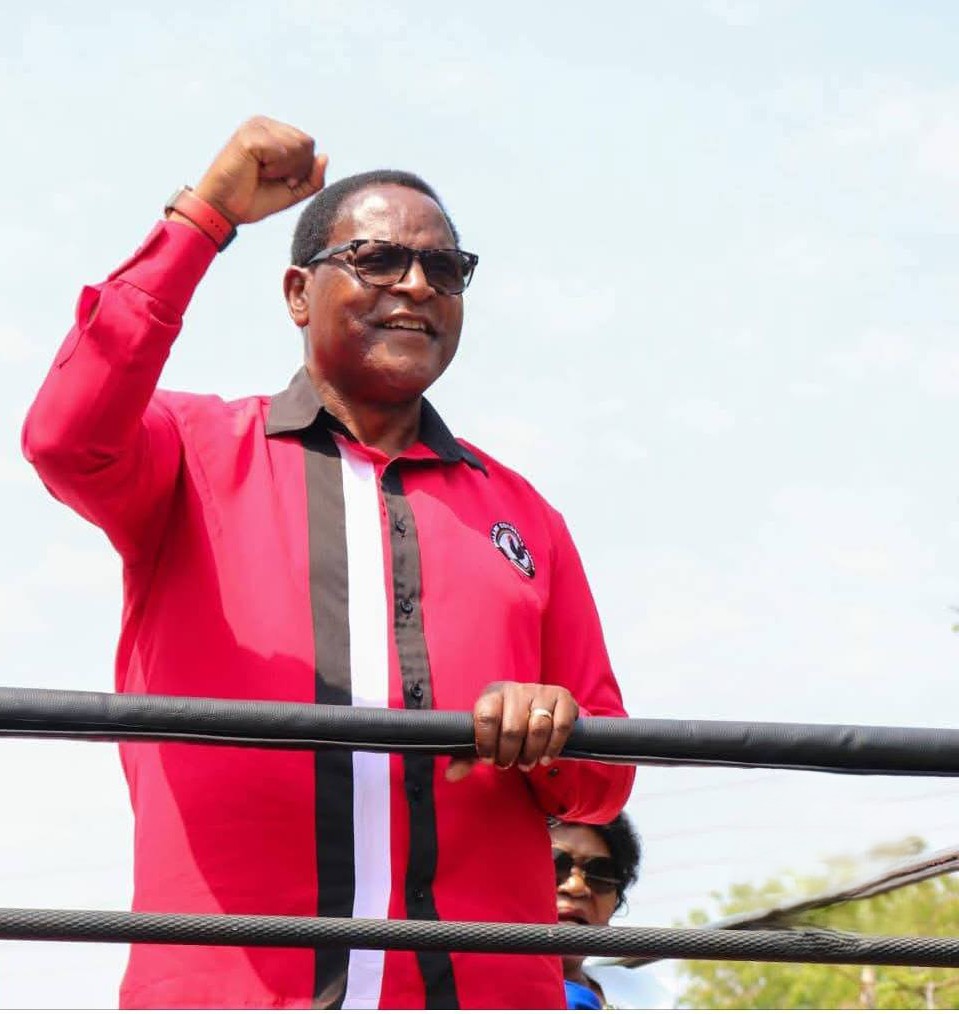
Now if we are to be honest and how Dr. Chakwera has worked throughout the campaign, even within Blantyre and Ntcheu, MCP is expected to nibble, not small pockets as it has been the case previously, but real big chunks of support and votes.
The cold fact. The south cannot deliver the same consolidated return to DPP that the central guarantees MCP.
The north too has crumbled against the DPP campaign.
For years, the Northern Region has been the wild card of Malawi’s elections. It has swung between parties, negotiated alliances, and punished leaders who ignored it. But in 2025, the calculus changed the day Dr. Chakwera announced Vitumbiko Mumba as his running mate.
Mumba, young, technocratic, and northern-born, immediately rebranded the MCP ticket as a truly national partnership. For many northerners, the decision symbolized recognition, after decades of marginalization.
The ripple effect is unmistakable. Constituencies that once flirted with DPP or UTM are now aligning with MCP, turning the north into a solid block. With the central already secure, this shift is devastating for DPP.
Contrast this with Mutharika’s choice of Jane Ansah. Instead of energizing new ground, it reopens old wounds from 2019 when she presided over an election so flawed it had to be annulled. That memory is still raw. To many, Ansah symbolizes electoral manipulation, not renewal.
The choice reveals the DPP’s miscalculation. They are running yesterday’s race, not today’s.
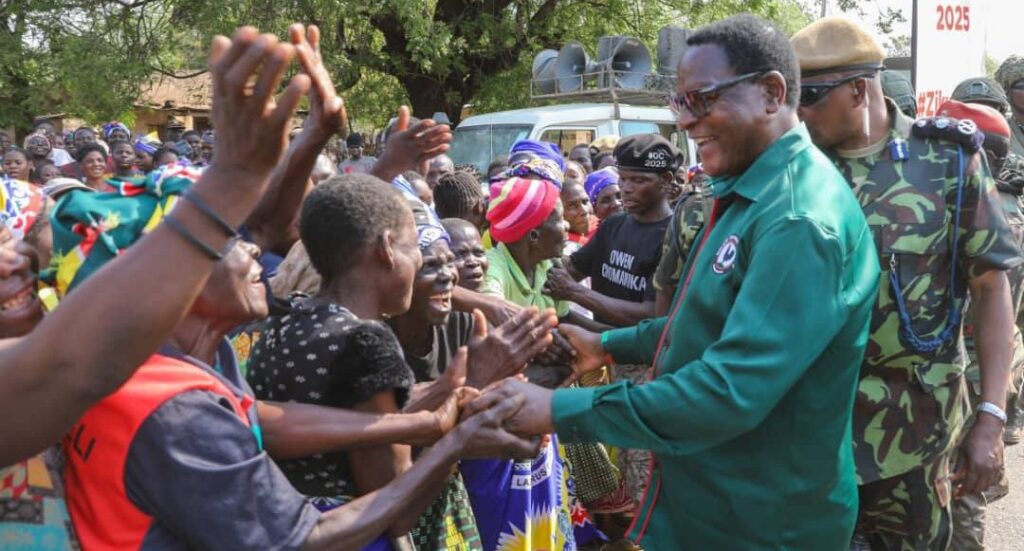
Another telling contrast lies in strategy. MCP has committed itself to the ground war, moving bodies, covering distances, investing sweat equity in whistle-stops. DPP has leaned heavily on the air war, social media videos, selective rallies, and messaging that harks back to its 2014–2020 rule.
But politics in Malawi is not won on Facebook likes or WhatsApp forwards. As Chakwera himself quipped on the trail, “Winawe sunalembetse udzavota pa Facebook ndi pa Mukuru.” The digital audience does not automatically translate into polling-day votes.
In rural Malawi, elections are won by who shows up in the trading centres, who shares a meal with chiefs, who attends funerals, who travels in convoys that locals can see and touch. On that metric, MCP is miles ahead.
Why then does the DPP still behave as if victory is within reach? The answer lies in a mixture of denial and selective memory.
First, the DPP clings to the notion that the south, its birthplace, is unshakably loyal. But loyalty without numbers is a myth. When seven candidates split the same pie, the biggest piece may not be big enough.
Second, the party relies on the economic discontent of Malawians. It is true, inflation, fuel shortages, and cost-of-living crises have hurt households. The DPP calculates that this pain will translate into a protest vote against Dr. Chakwera. Yet history shows that pain alone does not crown governments; it must be matched with credible energy on the ground.
Third, the DPP’s leadership remains in denial about its organizational weakness. With Mutharika physically limited and his lieutenants divided by factionalism, the party has not built a machine strong enough to mobilize voters across three regions.
In short, the DPP’s confidence is a mirage, an oasis conjured in the desert of political reality.
If the numbers hold, central and north solidly behind MCP, and the south fragmented, then this election will not be the DPP’s redemption but its reckoning.
It will be the moment Malawians demonstrate that elections are not about past glories but present effort. That a party cannot sleepwalk to State House while its rival runs the grueling marathon of whistle-stops, dust, and sleepless nights in forgotten trading centres.
It will also be a message about unity. When the central and north align behind a national project, the fractured south cannot rescue a party weighed down by its own divisions and arrogance.
Malawi’s 2025 election is not yet over, but its trajectory is clear. The MCP has run a disciplined, sweat-soaked campaign that has reached more than 421 whistle-stops, reshaped regional loyalties, and consolidated the north and central regions.
The DPP has run a campaign of nostalgia, assumption, and minimal ground presence, counting on southern numbers that no longer exist in consolidated form.
Unless a miracle unfolds in the final days, the truth is unavoidable. The DPP’s dream of victory is a mirage. And when the dust settles on election day, it will not be the party that wins Facebook, but the one that wins villages, trading centres, and the collective trust of a nation tired of empty appearances.
Malawians know who has walked with them, who has slept in their towns, who has spoken to them directly, and who has not.





